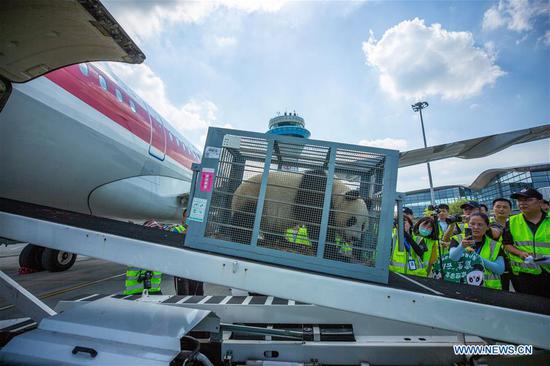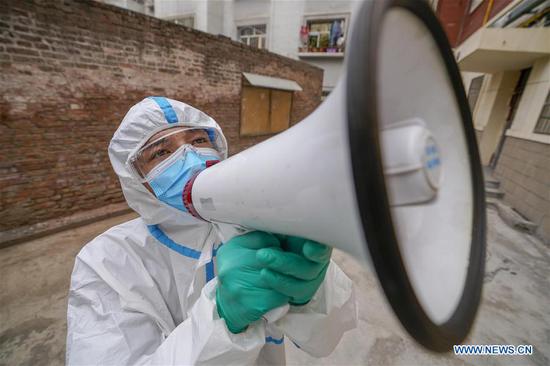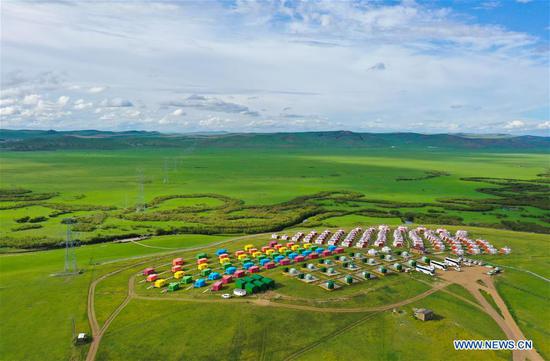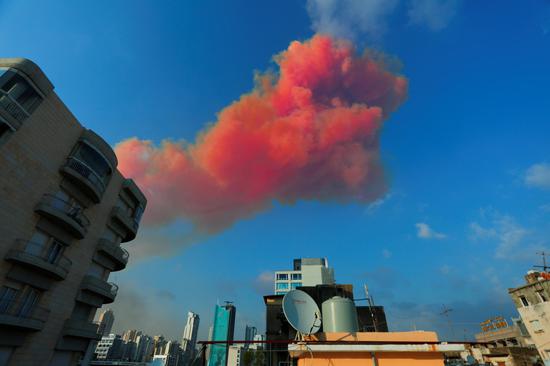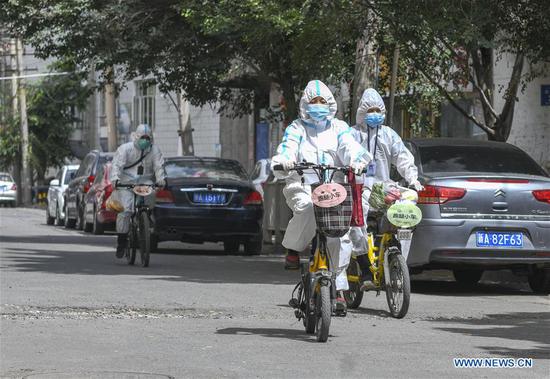The dire situation that global COVID-19 cases have topped 19 million has sounded a fresh alarm that the ravaging pandemic is far from withering away, and that the world is in urgent need of multilateral cooperation and global solidarity in combating the common enemy of humankind.
The coronavirus has claimed more than 713,400 lives worldwide so far. The United States has suffered the most with over 160,000 lives lost and Brazil follows with over 98,490 fatalities, according to data compiled by the Center for Systems Science and Engineering (CSSE) at Johns Hopkins University.
Other countries with more than 400,000 infections also include India, Russia, South Africa, Mexico and Peru, according to the CSSE.
LONG-RUNNING DETERIORATION IN HEALTH, ECONOMY
Across the United States, where the caseload surpassed 4.88 million on Thursday, major East Coast and Midwest cities have recently recorded an uptrend in cases, while the government's push for the reopening of schools has also aroused concern from experts.
The U.S. Centers for Disease Control and Prevention has forecasted that the country's death toll will reach between 168,000 and 182,000 by Aug. 22.
The pandemic has made the United States suffer its worst economic decline on record, as the nation's gross domestic product (GDP) plunged by 32.9 percent in the second quarter (Q2) amid the mounting COVID-19 fallout, according to the U.S. Commerce Department.
Latin America also saw exacerbating COVID-19 situations, with Brazil remaining the region's worst-hit country recording more than 2.9 million confirmed cases and a death toll of over 98,490 on Thursday, which both ranked the second-highest in the global tally, according to the CSSE.
Following the United States and Brazil, Mexico registered the world's third-highest coronavirus fatalities, which broke the level of 50,000 deaths on Thursday. The total number of the country's confirmed cases surged to 462,690 within the past 24 hours, according to the Health Ministry.
A dozen high-profile political officials, including Brazilian President Jair Bolsonaro and Bolivian Interim President Jeanine Anez Chavez, as well as several ministers, have tested positive for the virus.
According to a recent report released by the Economic Commission for Latin America and the Caribbean and the Pan American Health Organization, the pandemic will cause a 9.1-percent drop in regional growth in 2020, accompanied by a rise in unemployment of nearly 13.5 percent.
SECOND WAVE CALLS FOR CAUTION
Over the past weeks, several countries in Europe, Asia and the Middle East have registered an uptick in coronavirus infections, after lockdown and anti-pandemic restrictions were eased to promote economic and social activity.
Starting Monday, scores of towns and cities in western and northern France mandated outdoor mask rules, which the central government suggested the public to follow for fear of a second wave.
France reported thousands of new cases last week and confirmed over 30,300 virus-related deaths since the pandemic began. French Prime Minister Jean Castex on Monday urged the public "not to let down its guard" in the fight against the coronavirus.
As of Thursday, Germany confirmed 213,067 COVID-19 cases, up by 1,045 in one day, with its death toll standing at 9,175, according to the Robert Koch Institute.
Up to 77 percent of German citizens fear that a second COVID-19 wave will occur in the near future, according to a survey published by German public broadcaster ZDF last week.
German GDP in Q2 of 2020 dropped by 10.1 percent compared to the previous quarter, "the largest decline since the beginning of quarterly GDP calculations for Germany in 1970," according to the German Federal Statistical Office.
The uncertain prospect of the resurgence of the virus is overcasting economic recovery, especially the slowly returning tourism sector, under easing restrictions. Last week, Britain warned against non-essential travel to Spain, which insists the country is safe for tourists.
In Asia, Japan and the Philippines both saw a resurgence of infections after lockdowns were lifted over a month ago.
Japan on Thursday confirmed 1,477 new daily COVID-19 cases, bringing the nation's cumulative total to 44,287 infections as the virus' resurgence continues, while the number of confirmed COVID-19 cases in the Philippines surged to 119,460 after the country's department of health reported 3,561 new daily cases on Thursday.
Philippine President Rodrigo Duterte reimposed restrictions late last Sunday in the capital and outlying provinces, effective Aug. 4-18.
In the Middle East, Iran and Saudi Arabia took the lead in the number of confirmed COVID-19 cases, with over 320,000 and 284,000 on Thursday respectively, according to the CSSE.

















